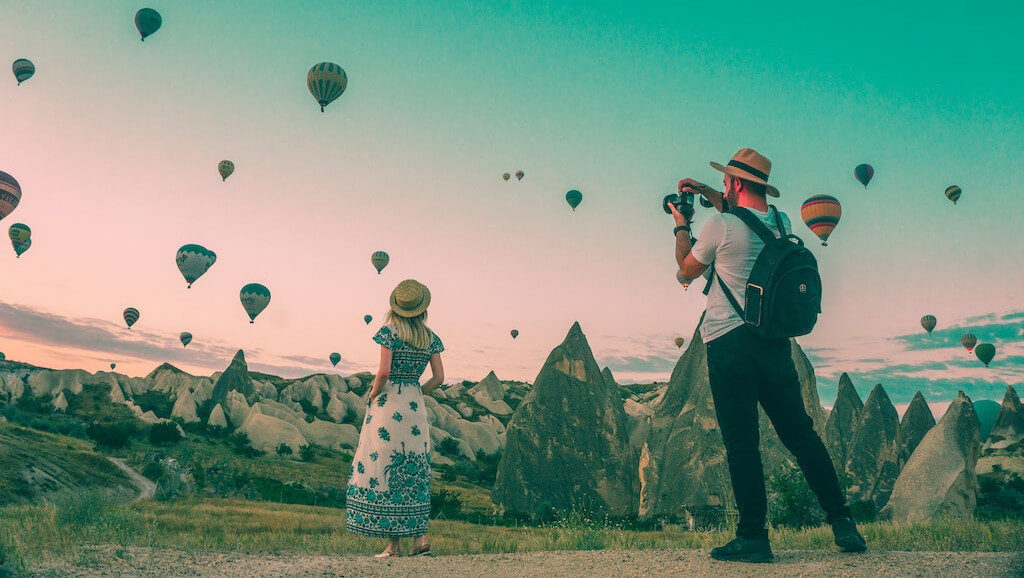
Over the last decade, influencer marketing has grown into an indispensable aspect of B2C digital marketing. For the hotel industry in particular, social media plays a significant role in attracting direct bookings and expanding brand awareness with potential guests. Two significant groups of travelers, Millennials and Gen Z, are increasingly important customer segments for the hospitality industry.
NB: This is an article from CartStack
Subscribe to our weekly newsletter and stay up to date
Known for their social media savvy, the impact of Millennial and Gen Z travelers cannot be understated:
- Millennials travel more than any other generation, averaging 35 days per year
- Millennials spent $200 billion on travel in 2018
- 43% of Gen Z list travel as their top priority
As digital natives, Millennials and Gen Z rely on social media platforms for travel research – 46% of Millennials have traveled to explore a destination they’ve seen on Instagram. This reliance on social media as a source of travel inspiration has catapulted influencer marketing into the forefront of hotel marketing strategies.
Travel influencers possess the unique ability to bridge the gap between branded content and real-world adventures, offering a glimpse into the extraordinary experiences that await potential guests.
That being said, how do you ensure your influencer marketing campaign is a success? Today, we’ll review exactly how to find the right influencer for your hotel, best practices for building your campaign, and how to measure your success.
Benefits of influencer marketing for hotels
- Direct Bookings: Influencers call attention to your social media pages, which will have direct links to your website and booking pages.
- Increased Visibility: Influencers have a dedicated and engaged following, and partnering with them can increase your hotel’s visibility among their audience.
- Significant ROI: Influencer marketing delivers an ROI of as high as $6.50 for every $1 spent, according to a survey of marketers by Tomoson.
- Trust and Credibility: According to polls by Edelman, 63% of consumers aged 18-34 trust influencer content more than branded advertisements.
- Authenticity & Social Proof: Authenticity is the driving force behind the power of social proof. Influencer marketing leverages both, with the influencer lending their unique voice and personality to your hotel
- Targeted Audience: Many influencers work within a specific niche, allowing you to choose influencers whose followers match your target demographic, ensuring that your message reaches the right people.
What is the Cost of Working with an Influencer?
The cost of working with an influencer varies widely based on several key factors. These include the influencer’s category, their follower count, niche expertise, and the specific scope of the collaboration. In essence, the cost can be broken down into the following components:
- Influencer Category: Influencers are typically categorized into Nano (1-10k followers), Micro (10k – 100k followers), Macro (100k – 1 million followers), and Mega/Celebrity (over 1 million followers). Generally, the higher the influencer’s followers, the higher their fee.
- Niche Expertise: Influencers with expertise in a specific niche or industry may charge more for their in-depth knowledge and ability to reach a highly targeted audience. For example, many hotel influencers have a specific niche, such as budget travel, luxury resorts, or family vacations.
- Content Creation: The complexity of content creation, including video production or high-quality photography, can impact costs. For instance, asking an influencer to produce multiple TikTok videos may be more expensive than static posts on Instagram.
- Duration and Scope: The length and depth of the collaboration also affect cost. A single post may cost less than a long-term partnership with multiple content pieces. How you plan to use the content (paid ads vs. organic) will also impact the total cost.
If you’re planning to use influencer marketing to your benefit, it’s necessary to set realistic expectations for your influencer collaboration. Before you reach out to an influencer for a potential partnership, align your internal teams and set clear marketing budgets, goals and expectations.




